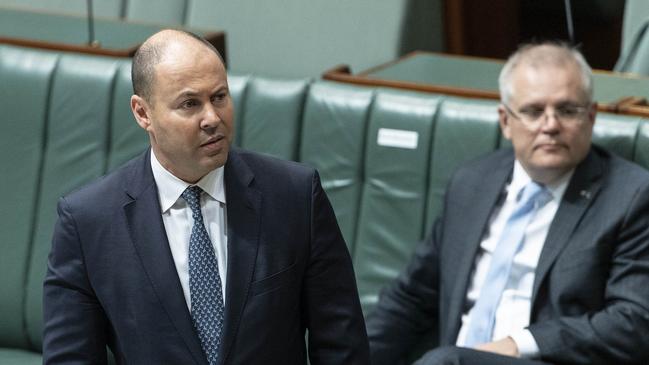
The three areas where there will be greatest intensity will be industry superannuation funds, airlines and NSW farmers seeking water. In each case the government needs to look at what other alternatives are available.
The industry superannuation funds request to the government or Reserve Bank for loans to cover liquidity may gather pace now that the JobKeeper rules will limit the coverage of the scheme.
If the numbers wanting to withdraw $10,000 before June 30 and $10,000 in the first quarter of 2021 increase then industry superannuation funds that have members concentrated in industries that are hit hard need to be able to retain the balance of their funds: the percentage invested in each category remains the same.
These funds have large investments in so called “illiquid“ investments like infrastructure. property and private equity. If they don’t reduce exposure to these sectors in the same proportion as other sectors then the funds still invested will be unbalanced.
Worst still, some funds, like Hostplus, have openly declared that their non listed “illiquid“ investments are valued above the levels that have been set in the wake of the stock market fall. If inflated payments are made on that basis, then those in the fund are clearly being treated unfairly and almost certainly if the market continues down trustees will spend the next decade in the courts.
Loans from the government or Reserve Bank actually don’t solve that situation. But there is at least one answer which, if implement, solves both the valuation and the illiquidity problems.
And better still it enlists one of the nation’s great assets in this crisis: the self-managed fund movement that has cash at the ready.
Securitisation solution
Overseas it is common for so called “illiquid” assets like infrastructure to be what is called “securitised” so that funds can sell down the proportion of the infrastructure investment that corresponds with major withdrawals. That selldown keeps the funds balanced and sets a market value for the infrastructure investment. Suddenly investments like infrastructure are not illiquid at all so a fund can reduce its stake in each investment segment of the fund in proportion to the withdrawal rate.
And the great news for the fund trustees facing a life in the courts is that it can be done in Australia. Among those that are able to implement such a scheme are the listed DomaCom and non-listed BrickX. There may be others.
A securities infrastructure or direct property investment would be marketed to self-managed funds on the basis of a minimum selling price set by the institution. If the price was fair they would be rushed. Remember the institution is only selling a small portion of the investment and retains control. They can even buy it back because a market is established. The process could be applied to industry fund investments in infrastructure held in the IFM group.
The industry finds may find another way around the problem but at least we know there is one that is available. No more calls for help from government or the Reserve Bank are required.
Airlines’ distress signals
The site of so many planes sitting on airport tarmacs is like a “help” beacon. Virgin wants a $1.4bn rescue and if Virgin gets money, Qantas wants an even greater sum. Virgin says the money is essential if Qantas is to have a competitor.
Last week, I pointed out that if Virgin fails – and hopefully it does not – then Australia has a low cost option of providing competition by restoring a scheme that the government canvassed but abandoned in the troubled times of the Ansett collapse.
Under the plan overseas airlines would be allowed restricted access to the domestic routes. And so, an overseas airline could land at an Australian destination and take domestic passengers to one or two other destinations. Carefully limited access to domestic routes would improve the attraction for overseas airlines to bring tourists to Australia.
Meanwhile both Qantas and Virgin need to look hard at how to make travelling in planes safer with regard to COVID-19.
Wanting water
The third plea for help comes from NSW farmers who want to plant their crops by accessing water from the Murray Darling system. The drought has broken and the Murray Darling is now enjoying increased water flows. One can only hope that the sense of purpose that has become part of the Morrison-Frydenberg partnership seeps into water minister David Littleproud. Just as with JobKeeper quick action is required and this time no money is involved, just water.
We can be very thankful that the drought broke at the sane time as the virus spread. Had the drought continued the economic impact of the virus would have been that much greater.







With the basic JobKeeper rules now established we are going to see the demand for specific industry “rescue” packages escalate.